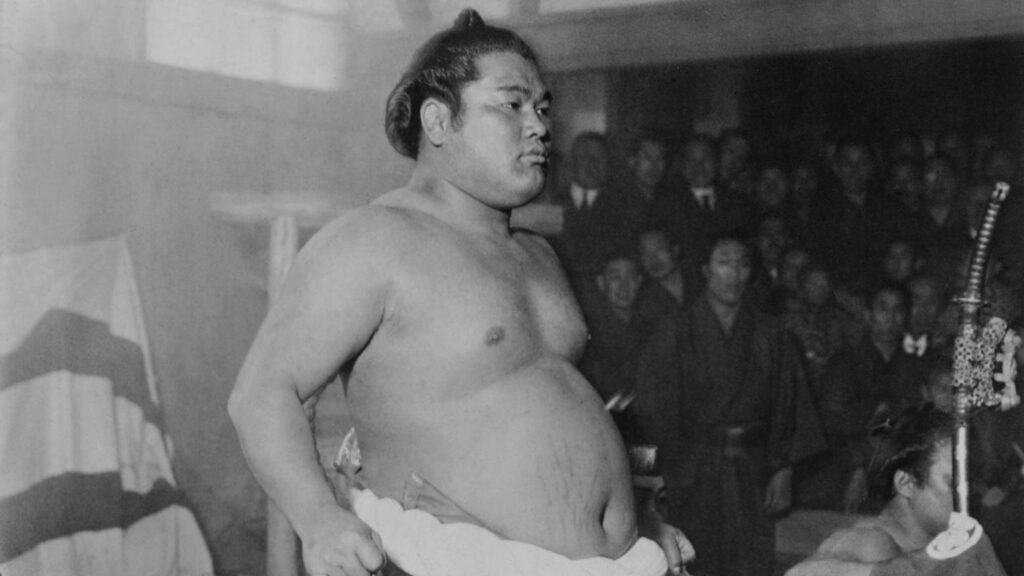Sports is undeniably a vital part of any culture, and Japanese culture is no exception. There’s a rich variety of sports to watch in Japan, ranging from traditional Japanese games to more recent favourites that have soared in popularity. We’ve rounded up the top 7 sports to watch in Japan for you!
One of the best ways to explore Tokyo is to visit the local areas and immerse yourself in the local culture. If you want to explore local areas, we have created scavenger hunt adventures personalised to your interests, filled with fun facts, clues and puzzles. If you’re curious, you can check out the games here! Check out the Flip Japan Games here! |
Find out about modern fashion, kimono culture, jikkyousha, the weeaboo culture, ninja, geisha, samurai, horror legends, and folktales.
Sports to Watch in Japan
Baseball

Baseball is undoubtedly the most popular sport in Japan. The professional league here has the longest history in the country. Interestingly, some Japanese even consider baseball as the national sport.
Although introduced by an American, Horace Wilson, it’s important to note that Japanese baseball differs from its American counterpart. The ball, strike zone, and playing fields are all smaller in Japan.
The first professional league was formed in 1936, and by 1950, it had grown so large that it split into two leagues: the Central League and the Pacific League, collectively known as Nippon Professional Baseball (NPB). The season kicks off every April and spans eight months. While mostly Japanese players make up the league, you’ll also spot some international talents. Each team is allowed up to four foreign players.
In addition to professional leagues, high school and amateur baseball also enjoy significant popularity and attract various sponsorships.
Sumo

Sumo wrestling is the national sport of Japan, originating here and played professionally only within its borders. If you’re keen on catching some top sports to watch in Japan, sumo should definitely be on your list. Each year, six tournaments are held across the country: three in Tokyo, one each in Osaka, Nagoya, and Fukuoka. Each of these tournaments lasts for 15 days, always starting and ending on Sundays.
Here’s the typical annual schedule for sumo events in Japan (though exact dates can vary):
- January – Tokyo
- March – Osaka
- May – Tokyo
- July – Nagoya
- September – Tokyo
- November – Fukuoka
When you book a ticket, you’ll find various seating options available. Opting for a Japanese box could give you the most authentic Japanese experience, where you’ll be expected to remove your shoes and settle onto floor cushions. However, not everyone finds this style of seating comfortable, given different seating habits. If that’s the case, plenty of chair seats are also available, usually being the most affordable option.
Football/Soccer

Football is a big deal in Japan, just as it is in many other countries. In fact, it’s the second most popular sport after baseball. The J. League, or Japanese Professional Football League, stands as the top national league. Gamba Osaka is a firm favourite among many fans. Moreover, the J. League not only captivates Japanese audiences but also attracts international viewers.
The league maintains official social media accounts in English, which have garnered a substantial international following. Beyond the success of the league, Team Japan has also been performing admirably. The men’s national team made their World Cup debut in 1998 and has participated in every tournament since. With plans to win the World Cup by 2050, there’s a tremendous amount of effort being poured into achieving this goal, making football one of the key sports to watch in Japan.
Figure Skating

Have you heard of Hanyū Yuzuru (羽生結弦)? According to a recent survey, he’s the most popular athlete in Japan! The Sports Life Survey, conducted by the Sasakawa Sports Foundation between August and September 2020, garnered 2,246 responses. Yuzuru’s success is not just due to his personal charisma but also the popularity of the sport itself. Ice skating is incredibly popular in Japan, and you can find rinks almost everywhere—including outdoor, natural rinks like Ice Land Akan in Kushiro, Hokkaido.
Another Japanese legend in the sport is Midori Ito (伊藤みどり). She was the first female skater to complete a triple-triple jump combination and a triple axel in competition. Japanese athletes usually excel in this sport at major events such as the Winter Olympics, World Skating Championships, and Grand Prix Finals. For instance, Mao Asada (浅田真央), another of Japan’s best-known female athletes, is considered the “queen of the triple axel.”
If you’re interested in exploring sports to watch in Japan, the Japan Figure Skating Championships are a fantastic event to start with.
Tennis

The history of tennis in Japan dates back to 1878 when five tennis courts were built in Yokohama’s Yamate Park. In 1920, Ichiya Kumagai won Japan’s first-ever medal at the Antwerp Olympics. Tennis stars like Naomi Ōsaka (大坂 なおみ) and Kei Nishikori (錦織 圭) have helped the sport attract more spectators and players. Naomi impressively won four Grand Slams and reached the No. 1 ranking in singles. Kei is the second male Japanese player to achieve a top 5 ranking in singles (after Jiro Sato) and is the only one to do so in the Open Era.
Beyond competitive sports, tennis is also taught in Japanese schools as part of the sports curriculum. However, many schools opt for soft balls instead of professional tennis balls to reduce costs.
Japan hosts significant tennis events as well. The ATP Tokyo, or Japan Open (500 series), is a men’s tournament held in Ariake Tennis Forest Park in Koto, Tokyo. For fans of women’s tennis, the Pan Pacific Open is an annual Premier event in Tokyo. These competitions make tennis one of the engaging sports to watch in Japan.
Table Tennis

At the Tokyo Olympics, Team Japan made history by winning three medals. These included a gold in mixed doubles (Jun Mizutani & Mima Ito), a silver in the women’s team event (Mima Ito, Kasumi Ishikawa & Miu Hirano), and two bronzes—one in the men’s team (Jun Mizutani, Koki Niwa & Tomokazu Harimoto) and another in women’s singles (Mima Ito). The gold medal in mixed doubles was particularly historic as it was the first-ever mixed doubles event in Olympic history.
While table tennis may not be the most popular sport in Japan, its popularity is definitely on the rise. For instance, an increasing number of parents are sending their kids to Iwata, Shizuoka Prefecture, to play table tennis—hometown to top Japanese players Mizutani and Ito.
With Team Japan continuing to create history at various international table tennis events, I’m sure more and more Japanese will be keen on both playing and watching this sport. If you’re interested in table tennis, one of the sports to watch in Japan, the Japan Open is held annually in different cities, attracting many top international players each summer.
Golf

Golf was introduced to Japan during the Meiji Restoration, between 1868 and 1912. However, before WWII, it was mainly the upper classes who played golf; other social strata didn’t have access to the sport. After the war, golf became more accessible to a wider audience.
The Japan Golf Tour is a significant circuit. Most Japanese players compete in the tour, alongside some international participants. One of the most popular and legendary figures in Japanese golf is Masashi Ozaki (尾崎 将司), who holds the record as the most successful player ever on the Japan Golf Tour with 94 tournament wins.
More and more people are taking up golf as a hobby. You can find golf courses quite easily in Japan; however, the language barrier might be an issue, as signs and rules are typically only in Japanese. Nevertheless, you can seek assistance from an agent or a personal coach to help navigate these challenges, making golf another intriguing sport to watch and play in Japan.
Discover More Sports in Japan
There are many different sports available for you to enjoy all year long, and the list doesn’t stop here. What other popular sports in Japan can you think of? What are the most popular sports in your country? Write to us or follow our social media accounts to join the conversation. If you are travelling to Japan, watching sports events in person is a great way to experience Japanese culture from various perspectives.











